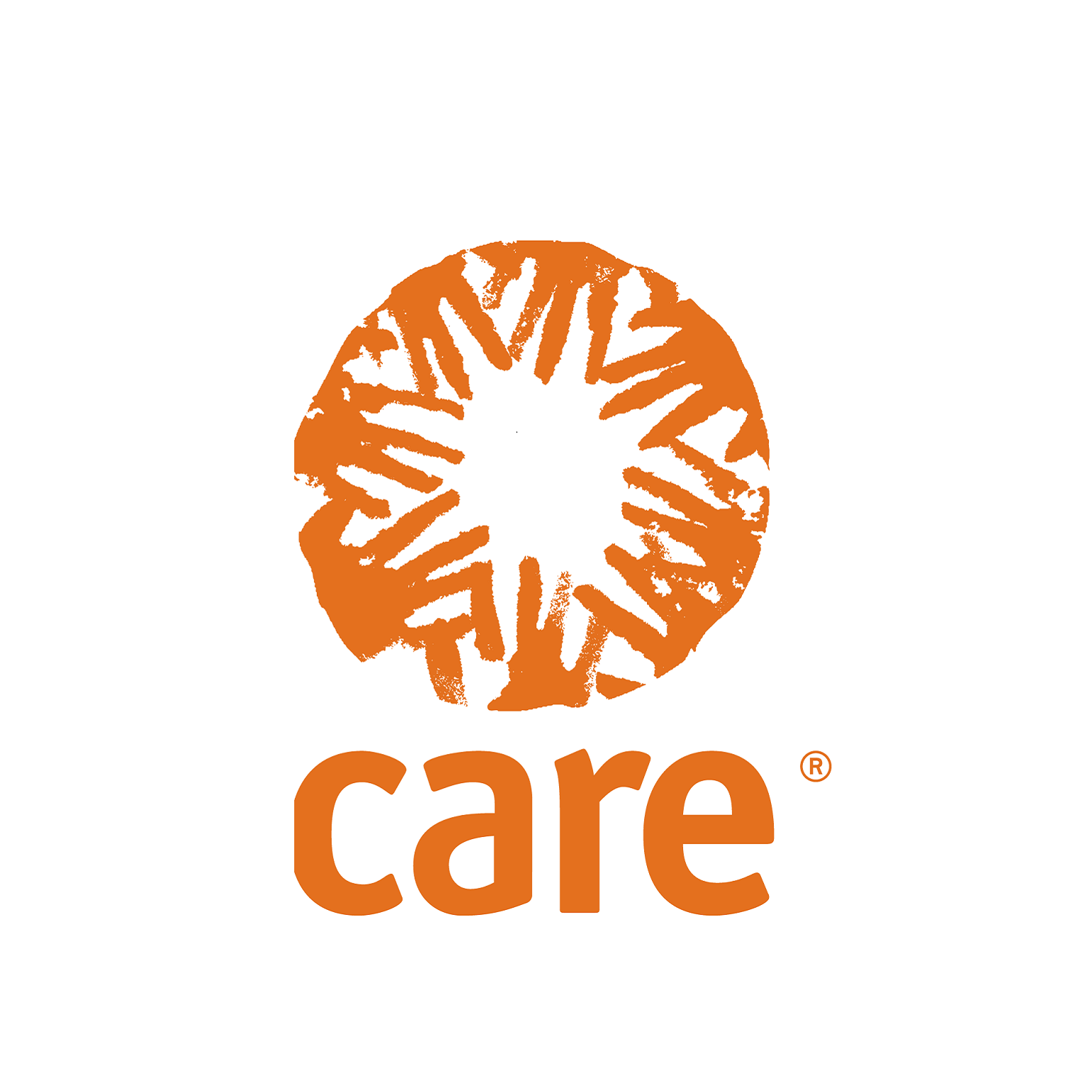Episodes

Thursday Feb 27, 2020
Just Live It: How to learn from failure in the conservation sector
Thursday Feb 27, 2020
Thursday Feb 27, 2020
Iain Dickson from Birdlife talks about his project, "Embracing Failures" which is developing a failure taxonomy that helps conservation organizations learn about the underlying causes of failure. What can we do to get better at learning from failure? "Just live it," says Iain. "We think about it as a complex overarching problem, but many of the solutions are simple." One of the key solutions they found was that there's appetite to talk about failure, but it works best when this is a conversation, and not an exercise filling out forms.
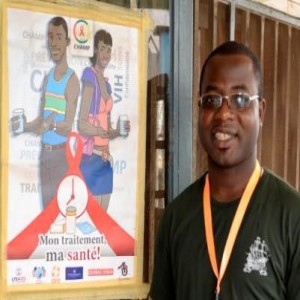
Thursday Feb 13, 2020
From Supervision to Empowerment: New Ways to Partner for Sustainability
Thursday Feb 13, 2020
Thursday Feb 13, 2020
Episode Francophone:Sandra Georges de CARE Cameroon discute le projet CHAMPS, et la transition de supervision a l'autonomisation. Ils changeaient leur approche de "faire faire" a "faire avec" a "laissez faire". L'approche comprenne la transition graduelle, un changement d'avis sur le partenariat, et la confiance aux communautes.
French Episode: Sandra Georges from CARE Cameroon talks about the CHAMPS project, and how they have had to move from "make others do" to "do together" to "let others do." It involves changing the way we think about partnership, gradually handing over responsibility, and believing local teams and communities about what approaches work best.
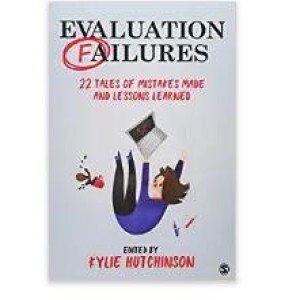
Wednesday Jan 29, 2020
Walking the Tightrope: Balancing Participation and Independence in Evaluations
Wednesday Jan 29, 2020
Wednesday Jan 29, 2020
Kylie Hutchinson, independent evaluator and author of three books about evaluation and program planning: Evaluation Failures: 22 Tales of Mistakes Made and Lessons Learned, A Short Primer on Innovative Evaluation Reporting, and Survive and Thrive: Three Steps to Securing Your Program’s Sustainability talks about how to learn from common evaluation failures to improve impact and social justice. Her two tips are learning how to engage stakeholders more effectively and understand context when you're doing an evaluation. Here are three questions to ask yourself before launching an evaluation: 1) What are we trying to learn? 2) What are we going to do about the answers? 3) When do we need to know?
If you want to learn more, you can read a free chapter in the book here, or find some tips on how to find evaluators here: http://evaluationforleaders.org
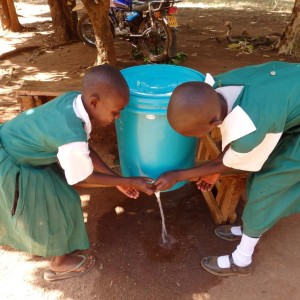
Thursday Jan 16, 2020
Understand Your Entry Points: How Admitting Failure Transforms Policy
Thursday Jan 16, 2020
Thursday Jan 16, 2020
Peter Lochery from CARE and Matt Freeman from Emory University discuss how research showed our programs weren't sustainable, and how admitting that failure helped drive innovation and national policy transformation in Kenya. They talk about 13 years of research partnership in the SWASH+ project--and how influencing policy has to be based on a willingness to admit what's not working, and an understanding of entry points and how the system works.
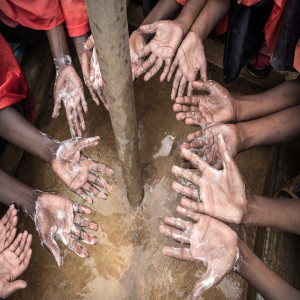
Thursday Jan 09, 2020
Thursday Jan 09, 2020
Learning to be less dogmatic about answering the most important academic questions, but instead focus on the practical questions that would allow project teams to "innovate and push" around creating sustainable programs for WASH in schools. Matt Freeman from Emory University and Peter Lochery from CARE talk about what they learned trying to create research that moved programs forward, and allowed us to get better at the work--even when it wouldn't contribute to publications in prestigious journals. They talk about 13 years of research partnership in the SWASH+ project--and how lots of smaller, practical studies with rigorous methods were more useful than one big RCT.
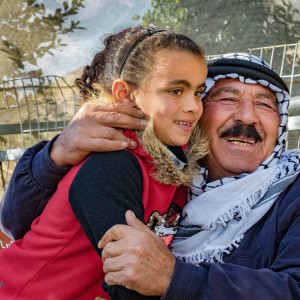
Thursday Jan 02, 2020
Thursday Jan 02, 2020
"Fear of failure is the only thing that ensures your dreams won't come true." Hiba Tibi from CARE's Middle East and North Africa hub talks about what they're learning from programs that didn't work, and how they are using those lessons to improve sustainability and scale. A big lesson is that Women's Economic Empowerment programs have to focus on both gender equality AND solid business cases--but many programs only manage one or the other. You can check out more lessons in the recent paper: Bringing Gender Equality Closer to Women's Economic Empowerment.
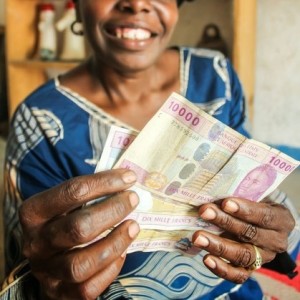
Wednesday Dec 04, 2019
9 Things You're Probably Doing Wrong: Lessons from Global Cash Programming
Wednesday Dec 04, 2019
Wednesday Dec 04, 2019
Holly Radice--CARE's Global Cash and Voucher Assistance Advisor--talks about the most common mistakes she sees when people implement cash programming. Some of her tips? Pay attention to GBV, focus on women and engage men, and most of all--don't be afraid of cash! There are lots of resources that can help you get it right.
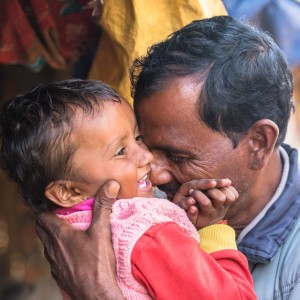
Wednesday Oct 16, 2019
Square Pegs and Round Holes: Fitting research to community needs
Wednesday Oct 16, 2019
Wednesday Oct 16, 2019
Anne Sprinkel and Dipendra Sharma from CARE's Tipping Point project talk about the challenges in implementing RCTs, and the risk of sacrificing communities' needs to the methodological rigor that researchers demand. "Make sure you have a good reason for doing an RCT," says Sprinkel. Sharma adds, "Start with good programming, then build research around it." They also have some great tips for managing expectations, clear communication, and just how long it takes to do it right (Hint: it's a lot longer than you think).
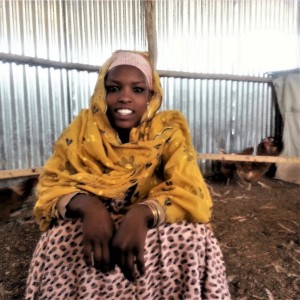
Tuesday Oct 08, 2019
Tuesday Oct 08, 2019
Zegeye Bante from CARE Ethiopia talks about working with youth VSLA, and what changes that requires from our traditional models. Youth are visionary and impatient, and want to meet their goals fast, so we have to accelerate our programming. At the same time, making sure that young people really understand the model, and that their parents and teachers accept and support the work we are doing takes a lot longer than it does with adult groups. So we have to find ways to build in more time at the beginning, and then get faster results so youth keep coming back.
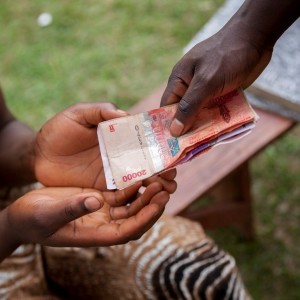
Thursday Sep 26, 2019
Exciting Times: Creating Urban Savings Groups With No Experience
Thursday Sep 26, 2019
Thursday Sep 26, 2019
Grace Majara and Takara Morgan talk about starting savings groups in Uganda's cities in 2008, with no experience, and no one on the team who had ever done it before. We assumed that the city VSLAs would be exactly the same as rural ones, and we were wrong. Differences in financial literacy, poor access to services, and the need to bring in people who understood the context are all key lessons from Grace's decade of experience in the space.

Thursday Sep 19, 2019
Mobility, Instability, and Crisis: Creating Savings Groups in Emergencies
Thursday Sep 19, 2019
Thursday Sep 19, 2019
Camille Davis and Barack Kinanga talk about the challenges of creating savings groups (VSLAs) in emergency settings. Barack works in Yemen, where they have been able to create savings groups, but only by making a lot of adjustments to our traditional model. Not every context works for VSLAs, and it takes longer for people in crisis to build up savings than in development settings. We also have to think about what happens if the people have to move again, and what they need to build resilience.
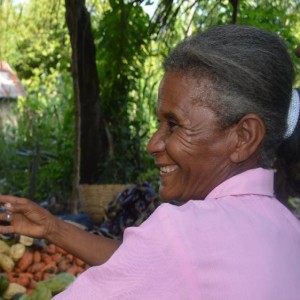
Wednesday Aug 28, 2019
Soyez Courageux et Realiste: Le lecons pour la creation des projets qui marche
Wednesday Aug 28, 2019
Wednesday Aug 28, 2019
Yawo Douvon et Barbara Jean Claude de CARE Haiti discute l'importance d'avoir le courage de dire quelque chose ne marche pas. Il faut du courage pour expliquer que les objectives ne sont pas realiste, et que nous risquons de ne pas tout accomplir. Avoir l'analyse du context--meme dans les cas d'urgence--le renforcement des rapports avec les bailleurs, la suivi des indicateurs, et la communcation sont tous les outils qui peuvent vous aider.

Thursday Aug 22, 2019
Be Bold and Realistic: Creating space for project plans that will work
Thursday Aug 22, 2019
Thursday Aug 22, 2019
Yawo Douvon and Barbara Jean-Claude from Haiti talk about the importance of being bold when it comes to admitting that something won't work. It takes courage to point out that goals and expectations are unrealistic, and that we might not get everything done. Getting good context analysis--even in emergencies--building solid donor relationships, carefully monitoring data, and being proactive in communications when something goes off track are all tips that can help you through a rocky project implementation. (French version will be coming the week of August 26th.)
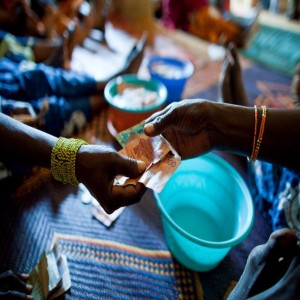
Friday Aug 09, 2019
Friday Aug 09, 2019
By popular demand, we've translated the August 1 Francophone episode into English. When CARE first started working with Village Savings and Loan Associations (VSLA) in Niger, we nearly broke the model because we were sure that we knew what to do, and women were wrong. Field staff were afraid to tell us that women were sharing out the money--a practice that is now a cornerstone of a global approach reaching millions of people. Why? Because it went against all of our assumptions about economic empowerment. Dr. Fatma Zennou from Niger talks about how to create a culture where people are not afraid to highlight innovations and the unexpected, where money isn't everything in empowerment, and where we help women put their voices together for change.

Thursday Aug 01, 2019
Thursday Aug 01, 2019
Episode Francophone. Quand CARE a commence le travail avec les Associations Villageois d'Epargne et de Credit (AVEC) au Niger, nous avons presque casse le modele parce que nous étions sûrs de notre approche, et que les femmes villageois se trompaient. Les animatrices avaient peur de nous dire que les femmes partagaient la caisse--ce qui est maintenant une pratique cle pour l'approche pour les millions de personnes. Pourquoi? Parce que cela a defie nos assomptions sur l'empowerment economique. Dr. Fatma Zennou du Niger discute la creation d'une espace ou les gens n'ont pas peur de discuter les innovations et l'innatendu, ou l'argent n'est pas tous, et ou les femmes mettent leurs voix ensemble pour le changement.
French Episode: When CARE first started working with Village Savings and Loan Associations (VSLA) in Niger, we nearly broke the model because we were sure that we knew what to do, and women were wrong. Field staff were afraid to tell us that women were sharing out the money--a practice that is now a cornerstone of a global approach reaching millions of people. Why? Because it went against all of our assumptions about economic empowerment. Dr. Fatma Zennou from Niger talks about how to create a culture where people are not afraid to highlight innovations and the unexpected, where money isn't everything in empowerment, and where we help women put their voices together for change.

